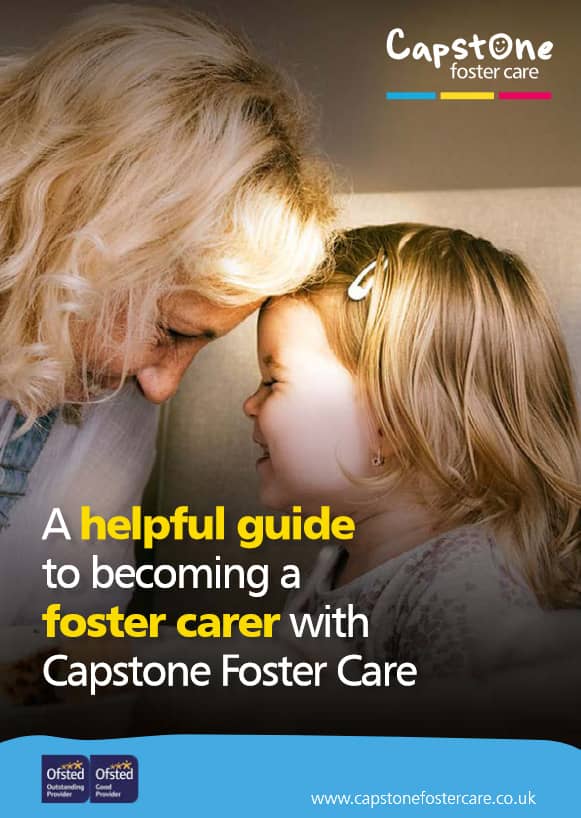


Fostering a disabled child
The role of an independent fostering agency
What support is available for foster carers?
How to choose a foster care agency
Foster Care Fortnight: How to raise awareness about children in foster care
Can I choose who I foster?
How to foster
What are the benefits of fostering with an independent fostering agency?
What happens when a child is taken into care?
Fostering process: what happens on an initial home visit?
Can you foster if you have mental health issues?
Fostering with local authority vs independent agency
Interview: Life as a foster parent during the pandemic
A complete guide to becoming a foster carer
Becoming A Foster Carer
Benefits of becoming a foster parent
What is a Care Leaver?
What is a Foster Carer?
What is Foster Care?
Do I become a Foster Carer?
Fostering Regulations
How much do Foster Parents get paid?
How to Foster a Child
How long does it take to become a Foster Carer?
How to foster – everything you ever wanted to know
Facts about Foster Care
What are the Foster Care requirements?
Foster Care Handbook
Foster Carer Job Description
Changing IFA - Transferring to Capstone
Fostering Definition
Foster Care Statistics
What does Every Child Matters Mean for Foster Parents?
Fostering Stories
Fostering Children UK
Children needing Fostering
Reasons for a child to be taken into Care
Fostering as a Career
Looked after Children
A guide to fostering assessments
LGBTQ+ Fostering
Equality, Inclusion & Anti-discriminatory Practice in Foster Care
What can disqualify you from foster care?
Can you foster if you’re on benefits?
Top transferable job skills to become a foster carer
Fostering as a same sex couple
Fostering while renting
Is there an age limit for fostering in the UK?
Do foster carers get a pension?
How to foster a child: A step by step guide
Can I foster if...?
Mythbusting the top 10 Foster Care Myths
Can I foster if I am disabled?
LGBT Fostering Mythbusting
Can I foster if I have pets?
Can I Foster A Child?
Can I Foster and Work?
Can you Foster with a Criminal Record
Can Single People Foster?
LGBT Family and Foster Care
Fostering across Cultures
Muslim Fostering
Christian Foster Care
Sikh Fostering
Empty Nest Syndrome and Foster Care
Can I Foster?
Fostering Babies and Young Children
Fostering Babies - Myths
Focusing on Parent & Child Fostering
Fostering Siblings
Fostering Teenagers
Fostering Teenagers - Breaking down the Myths
Fostering Unaccompanied and Asylum Seeking Children
Mother and Baby Foster Placements
Private Fostering
Therapeutic Fostering - Multi-disciplinary Assessment Treatment & Therapy Service (MATTS)
Young Children Fostering Placements
Difference between short and long-term fostering
Reunification and Birth Parents: A Guide for Foster Carers
How to prepare a child for becoming a care leaver
Children who foster: impact of fostering on birth children
How to prepare your home for a foster child
How to help a lonely child: A Guide for Foster Carers
What are the National Minimum Standards for Fostering Services?
10 tips for foster children’s education
How to prepare your foster child for secondary school
Tips for coping when foster placements end
Tips for foster parents during Coronavirus
What happens if foster parents get divorced?
5 ways to manage Mother’s Day with foster children
Tips for managing foster children’s bedtime routines
How to handle foster child bullying
Fostering allowances and the gender pay gap
What discounts can foster carers get?
How to adopt from Foster Care
5 ways to manage Fathers Day for children in foster care
8 most common fostering challenges
Supporting foster children’s contact with birth families
A guide to independent fostering
Keeping Children Safe Online: A Guide For Foster Carers
Foster Care in TV and Film
Play-based learning strategies for foster carers
A Guide to the Staying Put Program
How to deal with empty nest syndrome
How to recognise signs of depression in foster children
Can you take a foster child on holiday?
Tips and advice on fostering with a disability
10 tips on connecting with your Foster Child
Fostering vs Adoption - What's the difference?
How Fostering can change a future
How to adopt from Foster Care
How to encourage children to read in Foster Care
How to prepare a Foster Child's bedroom
Reading and Storytelling with Babies and Young Children
Supporting Children's Learning
The 20 most recommended books Foster Carers and young people should read
Things you can do when your children leave home
The impact of early childhood traumas on adolescence and adulthood
Anxious Disorders in Foster Children
What is sexual abuse and sexual violence
Foster Child behaviour management strategies
Foster Parent Advice: What to expect in your first year of fostering
Capstone's twelve tips at Christmas
10 celebrities who grew up in Foster Care
Celebrating our Children and Young People
Could Millenials be the solution to the Foster Care crisis?
Do you work in Emergency Services?
Form F Assessor and Assessment Training
Foster Care Fortnight
Improving Children's Welfare - Celebrating Universal Children's Day
It's time to talk about Mental Health and Foster Care
New Year - New Career - Become a Foster Carer
Promoting the rights and wellbeing of persons with Disabilities
Refugee Week
Young people and Mental Health in a changing world
Young People Charities
Becoming a foster carer is a rewarding experience that can make a difference in a child’s life. You might be curious about why your application could be rejected, especially if you're considering fostering. Or, if you’re already fostering a child you might want to know if changes in your circumstances might impact your ability to foster again. In this guide, we’ll explain why your application might be rejected, what changes in circumstances could disqualify you from being a foster carer and what you can and can’t do as a foster parent.
The main reason why your application to become a foster carer could be rejected is for not the fostering requirements. The fostering requirements are essential to ensure you can meet the needs of your foster child.meeting
To be considered as a foster carer you must meet the following requirements:
At Capstone, we assess all of our foster carers' applications on a case-by-case basis. Some circumstances may not necessarily stop you from being approved, but only if there is no risk of impacting the quality of care for your foster child.
While you can still become a foster carer if you have a criminal conviction, the nature and severity of the crime will be considered during your application. Serious convictions, violent crimes, sexual crimes and crimes against children will disqualify you from becoming a foster carer.
If you struggle with addiction or substance abuse or have a history of addiction, it’s likely to hurt the care of a foster child. Substance abuse and addiction can affect your ability to provide a safe and stable environment for your foster child to thrive in.
One of the benefits of fostering with Capstone is our generous fostering allowance, which covers the costs of looking after a foster child and rewards you for your time, your financial stability will still be considered. It's possible to become a foster carer if you receive universal credit and other benefits, any significant debt or financial instability could impact your ability to meet your foster child’s needs.
Just like your financial situation, if there are any risks to your foster child’s stability, it’s likely your foster carer's application will be rejected. This includes not having a stable housing situation. It could also mean an unsuitable living situation like inadequate heating, mould or unsafe electrical wiring. It includes anything that poses a danger to your foster child in your home, like a pet that could become vicious or issues with cleanliness that could turn into a health risk.
If you’ve had previous child protection proceedings or had a child or children removed from your care, it will be considered during the foster care application process. You’ll need to provide evidence of a safe and nurturing environment for your foster child.
There are several personal skills needed to become a foster carer, and you need to demonstrate your readiness and commitment to this role. Capstone is here to provide you with the support you need to become a foster carer, but you’ll need to possess the understanding, empathy and commitment to provide a supportive and loving home for your foster child.
If you’re already fostering a child, and there’s a change in your circumstances, our advice is to speak to your social worker so we can assess the situation. While some of these changes in circumstances can disqualify you from fostering, each case is reviewed individually with the child’s best interests at heart.
The rules of what you can or can't do are established to ensure the safety and care of your foster child. Some of these rules are fundamentals that should be a given.
Other rules that need further clarity include making decisions about your foster child’s life and care alone or without considering your foster child’s family. For example, a foster carer cannot refuse to vaccinate a foster child against their family’s wishes. You shouldn't make significant changes to your child’s life, including their education, or religious practices, without agreement from their family. You should also avoid making drastic changes to their appearance like shaving their hair or letting them get a tattoo.
As a foster carer, you should follow the appropriate channels regarding contact with your foster child’s family. All contact arrangements need to be agreed upon by your social worker and supporting team here at Capstone.
Want to learn more about who can foster? Read more in our guide. Or if you’re ready to take the next step in your fostering journey get in touch today.
If you’ve got any questions or would like to find out more about fostering with Capstone, fill out the form below.
An experienced fostering advisor from your local area will then be in touch.

Start the conversation today. Our team of friendly advisors are on hand to answer any foster care questions you may have. We can offer you honest and practical advice that can help you decide if becoming a foster carer is the right path for you.


